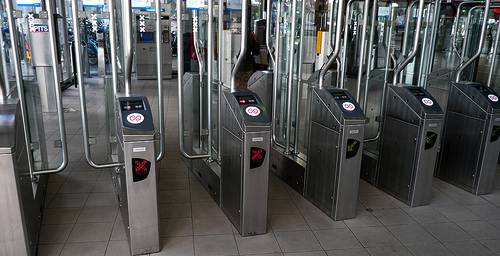Google One Pass: Changing the face of publishing?
Google's One Pass hurriedly graduated yesterday from University in Berlin hot on the heels of the announcement of Apple's subscription service.
The online content payment platform is available to publishers in the UK, US, Canada, France, Italy, Germany and Spain. The subscription billing application will be making its way onto smart phones, tablets and computers in the UK, mainland Europe and the States now.
How it works?
Readers who purchase content from a One Pass publisher can access their content on tablets, smart phones and websites after signing in with their Gmail email and password.
Publishers will be able to authenticate existing subscribers via them signing up to the service with their Gmail email addresses and passwords.
One Pass effectively lets publishers give existing print subscribers free or discounted access to digital content. Google takes care of the rest, including payments technology handled via Google Checkout.
Google take a 10% revenue share compared to Apple’s 30%. But with Apple some user’s data will be passed onto third parties. Apple subscribers will be able to use the service on Phones and iPads. The Google subscriber will be able to use the service on anything.
What does it all mean?
The era of unlimited, endless free content on the web is coming to an end. There isn’t enough advertising to support it, there hasn’t been for a while. People can’t work for free. Journalism costs.
Google’s latest online payment tool may not signal the end of a free lunch but it’s certainly tightening up its availability.
It’s difficult to stay which publishers will be using it.
One Pass is distinctly user-friendly. Publishers can customise how and when they charge for content while experimenting with different models to see what works best for them – subscriptions, metered access, freemium content, or single articles for sale from their website or mobile app store.
What we will begin to see however is a digital divide where people who can afford to pay for the service on one side and those who can’t, or won’t, firmly on the other.
Picture (cc) Cory Doctorow.




Comments
This is clearly a hot topic,
This is clearly a hot topic, it's also being discussed on the uk-netmarketing email discussion list. The questions there revolve around whether Google can make a go of the service.
From a publisher's perspective there's a fair bit of tech/setup resource required to make this work...and let's face it Google Checkout still doesn't rival Paypal (yet). There's a risk in spending the time working with this, only to have Google junk it.
On the other hand the revenue share coupled with the range of features make it look very attractive. One to watch closely, I reckon.